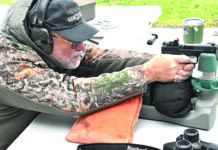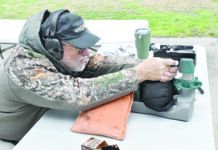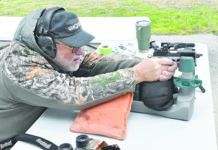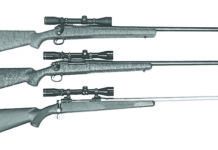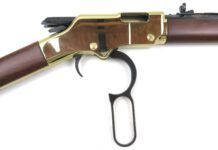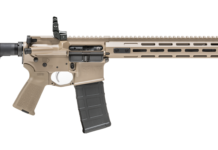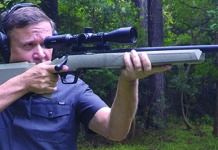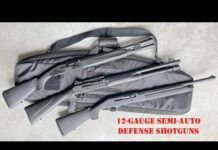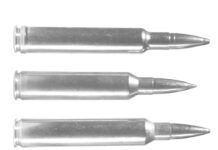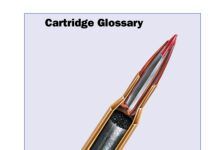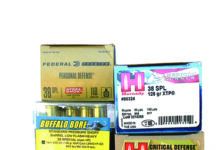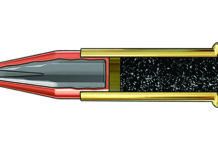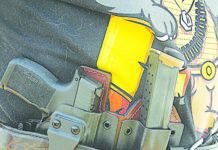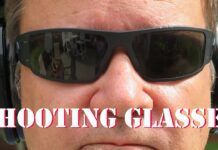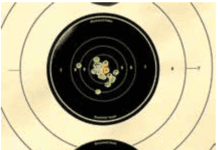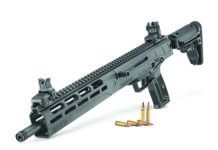Smith & Wesson has reached an agreement granting Safari Enterprises, Inc. worldwide rights to manufacture and market a line of recoil pads using the handgun manufacturer’s name.
The product line, which both companies say incorporates “innovative technical design and materials,” is the result of five years of research and development by Safari. Company president Morton Gerger said his firm has a complete inventory of the recoil pads to fit 90 percent of the rifles and shotguns made. He added that a line of handgun grips bearing the S&W name will be available within a year.
Safari has also developed a stick-on recoil pad that will adhere to vests or any other clothing worn during shooting. The washable product is available in several colors and renews its self-adhesive quality with each wash.
Court Wants Details On ATF
In-Line Muzzleloader Stand
A federal court in Washington, D.C. has told the Bureau of Alcohol, Tobacco and Firearms (ATF) to provide reasons why it wants to classify certain muzzleloading rifles as firearms.
The order, issued in a lawsuit brought against ATF by Modern Muzzleloading Co., Inc., came after the court declined to issue a preliminary injunction preventing ATF’s enforcement of its interpretation of the 1968 Gun Control Act (GCA).
ATF issued a directive in November saying that in-line rifles which “are designed or have been re-designed to utilize a modern shotgun primer for ignition are subject to all the rules of the GCA.” The rule at this point apparently affects only Modern Muzzleloading’s Knight Disc rifle, but several other guns on the market could also fit the ATF definition.
The Centerville, Iowa-based manufacturer contends that its in-line rifle should be classified as a replica of an antique and exempt from GCA rules. The manufacturer also maintains that primers are not modern ignition devices.
Modern Muzzleloading president Dale Watley has long maintained that his products were never meant to be regulated under the GCA. “We know that muzzleloading was not intended to be affected by the GCA and we have letters of support from several congressmen who know that, too. It is clearly apparent that ATF has a strong desire to regulate all of muzzleloading,” Watley asserted at the time he filed the suit. “ATF is doing exactly what it wants to do.”
The National Rifle Association, which attempted to meet with ATF last December on the subject but was turned down because the matter was in litigation, said that the court’s ruling “in essence found that Modern has a plausible argument in support of its contention and that ATF has failed to offer a sufficient explanation for its actions.”
Colorado Bans In-Line Muzzleloaders
For Special Season
The Colorado Wildlife Com-mission will no longer allow the use of in-line muzzleloading rifles during its special fall hunting season.
The new rules say that only rifles “having an exposed external hammer such as flintlock, percussion cap, sidelock or underhammer” will be allowed during the special season, which is now called the “Primitive Muzzle-loading Season.” In-line muzzle-loaders may still be used during the regular centerfire hunting seasons.
The commission’s decision came after it was pressured by the Colorado State Muzzleloading Association, which claimed that the in-line rifles “detracted from the primitive nature of the special muzzleloading season.”


